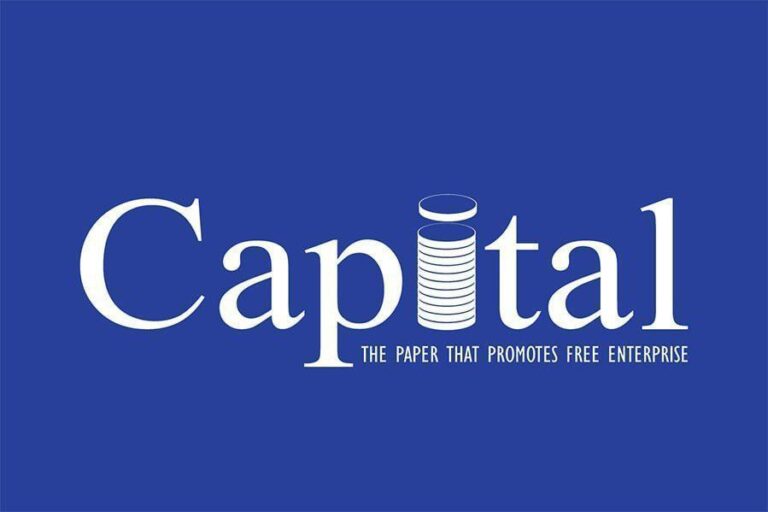Seven years after the signing of the AfCFTA and as countries grapple with creating jobs for Africa’s youth bulge, ECA asked thought leaders to offer their perspectives on jobs and value chains. Pamela Coke-Hamilton shares the importance of investing in tech for Africa’s agricultural value chains.
It has been four years since the start of trading under the African Continental Free Trade Area (AfCFTA), and the commentaries heralding its potential for transforming the continent’s economic prospects and delivering on its developmental goals are legion.
But at a global scale, those same four years have also witnessed a battery of crises unfolding throughout the world that have left no region unscathed, including Africa—and are showing no signs of slowing down.
Already, the changing weather patterns and natural disasters that are the hallmarks of our climate crisis have led to significant GDP losses within Africa, with the World Meteorological Organization placing these figures at two to five percent. They have also had an impact on agricultural production, while the food price spikes of recent years have further reinforced the urgency of prioritizing value addition, increasing intra-African agricultural trade, and lowering the continent’s reliance on imported food.
From COVID-19 to climate-induced natural disasters to the outbreak and resumption of conflicts, the global economy remains on shaky footing—and it’s the small businesses who we need driving the global recovery who often end up paying the price.
We cannot afford to wait until the world becomes calmer. We need to scale up our efforts to develop robust regional value chains —and for public and private actors to scale up their investments—to build greater resilience and turn things around.
The good news is that we aren’t starting from scratch: there are strong frameworks in place, a clear understanding of the challenges, and a path forward to putting lasting solutions in motion that promote value addition, reverse Africa’s declining terms of trade, and eliminate commodity dependence.
The AfCFTA is one such framework. Since trading began, the AfCFTA has continued to evolve as a treaty, with negotiators clinching protocols on topics ranging from women and youth to digital trade, competition, intellectual property rights, and investment. There have also been a host of strategies put in place, like the AfCFTA Secretariat Private Sector Engagement Strategy, to determine which sectors hold particular promise for businesses at home and abroad, helping decision-makers and investors alike determine where to prioritize and when.
Meanwhile, surveys, assessments, consultations, and extensive research is making it clearer to determine how to make good on the agreement’s promise, particularly for Africa’s small and medium-sized enterprises.
If fully implemented, the AfCFTA’s economic benefits would be immense: over 90 promising value chains have been identified, and trade within the African continent could grow by up to $22 billion per year, according to research from the International Trade Centre, a joint agency of the United Nations and the World Trade Organization.
Most of this untapped export potential comes from agricultural products and commodities, particularly cotton clothing and textiles, but also oilseeds, fruits, nuts, and essential oils, to name a few. Today, despite extensive efforts at value chain development, low value-added products in these sectors are often exported outside Africa only for their finished products to then be imported at much higher prices.
Nearly all of Africa’s raw cotton, for instance—90 percent—is processed abroad into yarn, fabric, and apparel and re-imported back into the continent, where spinning mills and production facilities remain scarce. That means missing out on more and better-paying jobs; on opportunities for women employed in the sector to have better livelihoods; and for reducing the sector’s environmental footprint.
We need greater investments in strategic economic sectors like agriculture where this value addition is sorely needed. And that means also investing in the digital ecosystem that can help make these value chains fit for our crisis-driven, and crisis-ridden, world.
Smallholder farmers already face several obstacles to moving up agricultural value chains. They often lack the finances to invest in agricultural inputs and make capital investments—including in modern equipment—making it extremely difficult to build up their processing capacity.
They struggle to determine which markets are best suited for their products, and what export requirements are involved. Information, after all, is power—without it, opportunities are lost, or at least deferred, just when we need to realize them the most.
And even when these elements are in place, poor logistics and transport infrastructure can stymy efforts to get goods to markets.
Digital solutions can help resolve, or at least mitigate, many of these challenges. And the timing couldn’t be better.
Africa is by far the youngest region in the world, with approximately 1 billion Africans below the age of 30 ready to harness digital technologies for business. We need to ensure they have every opportunity to bring the digital revolution to Africa’s agricultural sector, making it more sophisticated, modern, and resilient.
At the same time, the AfCFTA Digital Trade Protocol is now in play, and it is comprehensive and 21st-century-ready, setting the stage for greater regulatory convergence and common standards across the continent.
Africa’s digital ecosystem is becoming more robust by the day, driven not just by major companies but also by smaller digital startups. These startups are becoming increasingly commonplace not just in countries like Egypt, Kenya, Nigeria, and South Africa, which already have a strong reputation for their digital bona fides, but in Ethiopia, Ghana, Senegal, and a host of other countries where these sectors are comparatively new.
This digital ecosystem is not just creating tech jobs in an increasingly competitive global market. It is also creating new chances for local agribusinesses to adopt technological solutions that can help with everything from upgrading production practices to meeting supply chain traceability requirements.
Agritech companies can support agribusinesses in adopting digital advisory services, helping make the harvesting process more effective and productive, along with being less costly.
They can enable agribusinesses to adopt “smart farming” practices, where data is used to inform how farmers manage their fields.
They can help make the daily financial processes of running an agribusiness easier, such as by enabling farmers to adopt mobile payment solutions, while also making it simpler for farmers to engage with financial service providers.
And many agritech startups are already making these solutions possible.
Today, there is a strong and growing cohort of agritech startups in action, which span across countries such as Benin, Côte d’Ivoire, Ethiopia, Ghana, Mali, Senegal, and Uganda. Many of them have even joined up in communities of practice so they can share their experiences, learn from each other’s successes, and brainstorm new innovations to meet the needs of the agribusinesses they work with.
Investing in these agritech startups and digital solutions is one step. But this must be paired with a clearer understanding of how much existing agribusinesses across the value chain are “digitally ready” in the first place—in other words, able to adapt how they work to incorporate digital tools, technologies, and platforms.
Some businesses may be offline entirely, while others may have some digital capabilities but need more support to build their digital skills or put in place new digitally-driven practices. Without knowing their level of digital readiness, no agribusiness can know which technological services and products—digital and otherwise—will best meet their needs.
Tech startups also need the chance to see firsthand what agribusinesses require, allowing them to design the right solutions for the daily realities that farmers, cooperatives, and processors face.
Field visits between urban-based tech startups to ginger farms, pineapple growers, and processors in Kumasi, Ghana, and coffee cooperatives in Yirgacheffe, Ethiopia have already made clearer what farmers’ digital needs are—and led to more customized technological answers.
None of these changes happen overnight. All of them require the commitment and support of local and international partners from the public and private sectors, along with the active participation of agribusinesses and agritech companies themselves.
This is what it looks like when we invest in local solutions to local needs. And this is what it looks like when we don’t just aim for short-term wins but invest in playing the long game.
Pamela Coke-Hamilton is the Executive Director of the International Trade Centre




